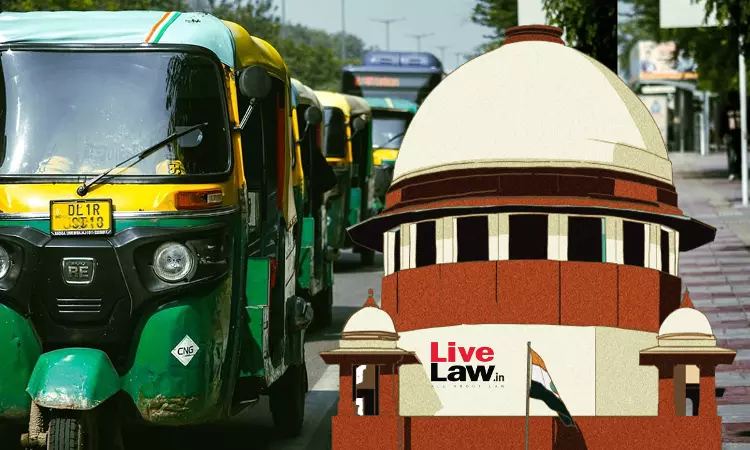Supreme Court Rejects Plea By Bajaj Auto To Raise Cap On Auto Rickshaws In Delhi
Amisha Shrivastava
10 July 2024 5:40 PM IST

Next Story
10 July 2024 5:40 PM IST
The Supreme Court today dismissed plea filed by Bajaj Auto seeking a raise in the upper limit on number of auto-rickshaws allowed in Delhi.A bench of Justice Abhay Oka and Justice Augustine George Masih observed that the cap was imposed for the protection of environment, and a wrong signal would be sent if the court entertains such a plea by an auto manufacturer interested in increasing...
